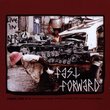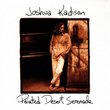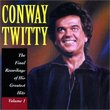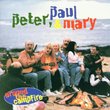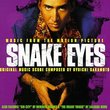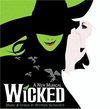| All Artists: Mattijs van de Woerd, Maurice Durufle, Francis Poulenc, Olivier Messiaen, Peter Dijkstra, Christianne Stotijn, Erwin Wieringa, Erwin Wiersinga, Ulrike Wild, Marjon Strijk, Isabel Delemarre-Werner, Titia Heijst, Susan Jonkers, Marian Marquez, Mariska van der Meij, Kees de Groot Title: Lux Ęterna [Hybrid SACD] Members Wishing: 1 Total Copies: 0 Label: Channel Classics Nl Release Date: 6/14/2005 Album Type: Hybrid SACD - DSD, Import Genre: Classical Styles: Opera & Classical Vocal, Historical Periods, Early Music Number of Discs: 2 SwapaCD Credits: 2 UPC: 723385224051 |
Search - Mattijs van de Woerd, Maurice Durufle, Francis Poulenc :: Lux Ęterna [Hybrid SACD]
![Lux Æterna [Hybrid SACD]](https://nationalbookswap.com/cd//l/20/7420/6127420.jpg) | Mattijs van de Woerd, Maurice Durufle, Francis Poulenc Lux Ęterna [Hybrid SACD] Genre: Classical |
Larger Image |
CD DetailsSimilar CDs
Similarly Requested CDs
|
CD ReviewsFrench religious choral music: Ethereal, Blissed Out, Praise Dan Fee | Berkeley, CA USA | 03/23/2006 (5 out of 5 stars) "This super audio disc set offers quite a lot of choral music, though admittedly it is pricey. Durufle is the main composer here, with his world-famous Requiem (Op. 9) being the centerpiece on the first SA-CD. But the other Durufle works are not fluff. We are given the the brief meditative setting of the Our Father text (Op. 14) plus the longer Messe cum Jubilo (Op. 11). Then the second SA-CD continues intermixed with choral music by Poulenc: (1)Four prayers of St. Francis (1949), and (2)Laudes (hymns of praise) for St. Anthony of Padua. The second SA-CD closes with Messiaen's equally famous motet, O Sacrum Convivium (1937).
The repertoire point then is just that this 2 SA-CD set contains choral works that stand high in the 20th century French literature. Another congenial aspect is that all of the works are - and were intentionally written by their respective composers to be - devotional, even in a sense liturgical. You can just sing this stuff as great choral music, but you can also sing it as great choral music plus a shared ritual of spirit. The singers are a very high quality male group of sixteen from The Netherlands, called The Gents (who were earlier singing together for years as members of the Roden Boys Choir), plus about twelve invited female singers to meet the mixed chorus requirements of the music at hand. The Gents reminds me of a similar group in USA called Chanticleer. Their numbers invite the comparison, but their extremely high quality musicianship across the centuries of western choral literature are really the point of the comparison. It is nice to hear that the invited women are well up to the standards set by The Gents in the first place; and that is all to the good, because you wouldn't wish in this music to have half of the choir reaching high, while the other half sang along on lower levels of technique or tonal and expressive capacity. In multi-channel super audio sound, this set will transform your listening space into a plausible and blessed acoustic based on the German Catholic Church of St. Gudula in Rhede. The space is important here, because each composer was quite familiar with various church venues, and so the sounds of the choir need to be one with the organ, particularly in the Durufle Requiem. It is difficult if not impossible to fault the music or the singers. Technically, everybody is reaching high levels of breath control, articulation, phrasing, and tonal expressiveness. Subtle power is the watchword phrase here. (One would hardly wish for a ham-fisted, folk song approach to any of this literature.) Musically, these performances go deep, and probably will wear as well as any over the lifespan of your music collection. You can rest as a spirit and as an intellect in how these bejewelled works are performed. You can drift away in the chariot clouds as you listen. You can abide along with the singers and organist. You can even pray or praise in any way your beliefs or your conscience or your sense of intangible realities allows. The very last work on the second SA-CD is the Messiaen. Somehow this motet, O Sacrum Convivium, is the perfect conclusion to all that has gone before. One suspects that musical thinking - and maybe even devotional awareness - resulted in the wise ways that each work is programmed in sequence on the two SA-CD's in this set. Ah, how nice and how lovely, that the marketing bees' buzz was sent away in favor of thinking through what order we should have in this set. As the Messiaen fades, yet lingers, you may find occasion to hit the repeat buttons on your player. The Messiaen is entirely light-bearing, entirely glowing, entirely voiced in exquisite meaning, not only by the immediate real singers at hand, but somehow by all the rest of us who have ever heard this motet over the decades since 1937. Save up your change, then, and splurge when you can on this set. Then let whatever lights of spirit and humanity you know at your best join in celebration with the music and the performers. Bravo to the people at Channel Classics for letting this set be an unblemished example of what a classical SA-CD recording can be these days. Kudos all round. Plus lots of stars." |


